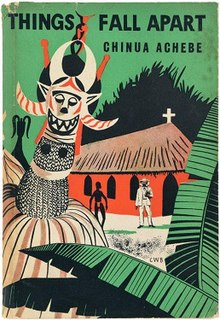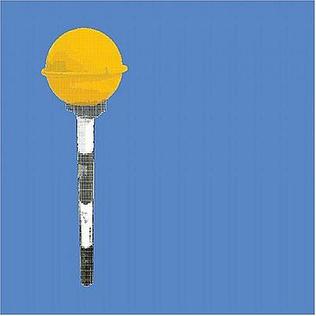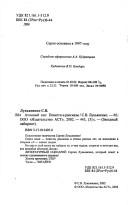
Things Fall Apart is a novel written by Nigerian author Chinua Achebe. Published in 1958, its story chronicles pre-colonial life in the south-eastern part of Nigeria and the arrival of the Europeans during the late nineteenth century. It is seen as the archetypal modern African novel in English, one of the first to receive global critical acclaim. It is a staple book in schools throughout Africa and is widely read and studied in English-speaking countries around the world. In 1962, Achebe's debut novel was first published in the UK by William Heinemann Ltd. Things Fall Apart was the first work published in Heinemann's African Writers Series.
Eleven or 11 may refer to:
"The Second Coming" is a poem written by Irish poet W. B. Yeats in 1919, first printed in The Dial in November 1920, and afterwards included in his 1921 collection of verses Michael Robartes and the Dancer. The poem uses Christian imagery regarding the Apocalypse and Second Coming to allegorically describe the atmosphere of post-war Europe. It is considered a major work of modernist poetry and has been reprinted in several collections, including The Norton Anthology of Modern Poetry.

The Perfect Prescription is the second studio album by Spacemen 3. It is a concept album, "a vision of a drug trip from inception to its blasted conclusion, highs and lows fully intact." The music becomes progressively more orchestral and serene until the high of the trip, represented by "Ecstasy Symphony"/"Transparent Radiation (Flashback)," moving on to the moment of realisation where the high has faded and the comedown ensues, represented by the harsh opening guitar chords in "Things'll Never Be the Same." Coming down is represented in the blues based "Come Down Easy," whilst the potentially fatal effects of an overdose are portrayed in the final track "Call the Doctor." The music was written by the band except "Transparent Radiation" which is a Red Krayola cover from their 1967 album Parable of Arable Land. The band also borrow heavily from the gospel standard "In My Time of Dying," for "Come Down Easy" and pay homage to Lou Reed in "Ode to Street Hassle."

Almost Transparent Blue is a 1976 novel, written by Japanese author Ryū Murakami, that features a portrait of narrator Ryū and his friends trapped in a cycle of sex, drugs and rock 'n roll during the 1970s.

"Flower" is Koda Kumi's 17th domestic single. Flower was written as the theme song for the novel Koibana (恋バナ / Love Story) and also used in the television advertisement for the novel. The lyrics were written by the author of Koibana, Yoshi. This was also the first domestic single released by Kumi that was not accompanied by a promotional music video. It reached #4 on the weekly Oricon Chart.
Wild Thing or Wild Things can refer to:
Shape of Things to Come may refer to:

Fujiya & Miyagi are a British group formed in Brighton, East Sussex, England, in 2000. The current line-up consists of David Best, Stephen Lewis, Ed Chivers (drums), Ben Adamo and Ben Farestuedt. They have released eight studio albums: Electro Karaoke in the Negative Style (2002), Transparent Things (2006), Lightbulbs (2008), Ventriloquizzing (2011), Artificial Sweeteners (2014), Fujiya & Miyagi (2017), Different Blades from the Same Pair of Scissors (2017), and Flashback (2019). They are currently signed to Impossible Objects of Desire worldwide.

A Place in the Sun is the fifth studio album by American country music artist Tim McGraw. It was released on May 4, 1999. "Please Remember Me" was nominated for Best Male Country Vocal Performance at the 2000 Grammy Awards. "My Best Friend" was nominated in the same category the following year. The CD was originally available with a limited edition booklet that had two transparent sleeves inside. Subsequent releases have all the same information, though without the transparent pages.

Transparent Things is an album by Fujiya & Miyagi released in 2006. It was re-released in the United States in 2007 with different artwork and the bonus track "Reeboks in Heaven".

Transparent Things is a novel by Vladimir Nabokov published in 1972. It was originally written in English.

Oora is the fifth album by psychedelic rock group, the Edgar Broughton Band, first released in 1973. It was the Broughtons' last album for Harvest Records.

Nuclear Dream is a collection of various works by Sergey Lukyaninko, which was published in 2002. Most of the short stories were previously published individually, either online on in various literary magazines. Along with other things, it included the novel Nuclear Dream.
Little Things or The Little Things may refer to:
Vision or The Vision may refer to:
Things or The Things may refer to:

The transparent eyeball is a philosophical metaphor originated by Ralph Waldo Emerson. The transparent eyeball is a representation of an eye that is absorbent rather than reflective, and therefore takes in all that nature has to offer. Emerson intends that the individual become one with nature, and the transparent eyeball is a tool to do that. In the book Nature, Emerson explains that the meaning behind the transparent eyeball is similar to a scientific standpoint on the Bible.
Transparency, transparence or transparent most often refer to transparency and translucency, the physical property of allowing the transmission of light through a material.
This page is based on this
Wikipedia article Text is available under the
CC BY-SA 4.0 license; additional terms may apply.
Images, videos and audio are available under their respective licenses.









